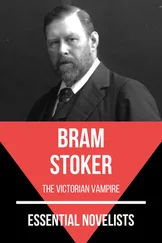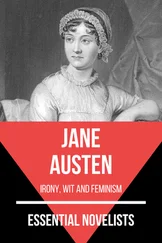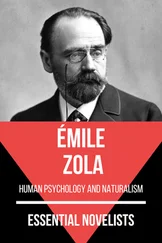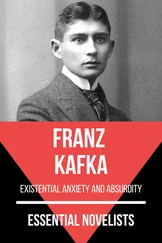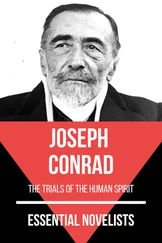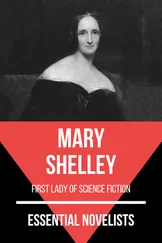If I may be allowed to give my opinion, by what I saw with my eyes and heard from other people that were eye-witnesses, I do verily believe the same, viz., that there died at least 100,000 of the plague only, besides other distempers and besides those which died in the fields and highways and secret Places out of the compass of the communication, as it was called, and who were not put down in the bills though they really belonged to the body of the inhabitants. It was known to us all that abundance of poor despairing creatures who had the distemper upon them, and were grown stupid or melancholy by their misery, as many were, wandered away into the fields and Woods, and into secret uncouth places almost anywhere, to creep into a bush or hedge and die.
The inhabitants of the villages adjacent would, in pity, carry them food and set it at a distance, that they might fetch it, if they were able; and sometimes they were not able, and the next time they went they should find the poor wretches lie dead and the food untouched. The number of these miserable objects were many, and I know so many that perished thus, and so exactly where, that I believe I could go to the very place and dig their bones up still; for the country people would go and dig a hole at a distance from them, and then with long poles, and hooks at the end of them, drag the bodies into these pits, and then throw the earth in from as far as they could cast it, to cover them, taking notice how the wind blew, and so coming on that side which the seamen call to windward, that the scent of the bodies might blow from them; and thus great numbers went out of the world who were never known, or any account of them taken, as well within the bills of mortality as without.
This, indeed, I had in the main only from the relation of others, for I seldom walked into the fields, except towards Bethnal Green and Hackney, or as hereafter. But when I did walk, I always saw a great many poor wanderers at a distance; but I could know little of their cases, for whether it were in the street or in the fields, if we had seen anybody coming, it was a general method to walk away; yet I believe the account is exactly true.
As this puts me upon mentioning my walking the streets and fields, I cannot omit taking notice what a desolate place the city was at that time. The great street I lived in (which is known to be one of the broadest of all the streets of London, I mean of the suburbs as well as the liberties) all the side where the butchers lived, especially without the bars, was more like a green field than a paved street, and the people generally went in the middle with the horses and carts. It is true that the farthest end towards Whitechappel Church was not all paved, but even the part that was paved was full of grass also; but this need not seem strange, since the great streets within the city, such as Leadenhall Street, Bishopsgate Street, Cornhill, and even the Exchange itself, had grass growing in them in several places; neither cart or coach were seen in the streets from morning to evening, except some country carts to bring roots and beans, or peas, hay, and straw, to the market, and those but very few compared to what was usual. As for coaches, they were scarce used but to carry sick people to the pest-house, and to other hospitals, and some few to carry physicians to such places as they thought fit to venture to visit; for really coaches were dangerous things, and people did not care to venture into them, because they did not know who might have been carried in them last, and sick, infected people were, as I have said, ordinarily carried in them to the pest-houses, and sometimes people expired in them as they went along.
It is true, when the infection came to such a height as I have now mentioned, there were very few physicians which cared to stir abroad to sick houses, and very many of the most eminent of the faculty were dead, as well as the surgeons also; for now it was indeed a dismal time, and for about a month together, not taking any notice of the bills of mortality, I believe there did not die less than 1500 or 1700 a day, one day with another.
One of the worst days we had in the whole time, as I thought, was in the beginning of September, when, indeed, good people began to think that God was resolved to make a full end of the people in this miserable city. This was at that time when the plague was fully come into the eastern parishes. The parish of Aldgate, if I may give my opinion, buried above a thousand a week for two weeks, though the bills did not say so many;—but it surrounded me at so dismal a rate that there was not a house in twenty uninfected in the Minories, in Houndsditch, and in those parts of Aldgate parish about the Butcher Row and the alleys over against me. I say, in those places death reigned in every corner. Whitechappel parish was in the same condition, and though much less than the parish I lived in, yet buried near 600 a week by the bills, and in my opinion near twice as many. Whole families, and indeed whole streets of families, were swept away together; insomuch that it was frequent for neighbours to call to the bellman to go to such-and-such houses and fetch out the people, for that they were all dead.
And, indeed, the work of removing the dead bodies by carts was now grown so very odious and dangerous that it was complained of that the bearers did not take care to clear such houses where all the inhabitants were dead, but that sometimes the bodies lay several days unburied, till the neighbouring families were offended with the stench, and consequently infected; and this neglect of the officers was such that the churchwardens and constables were summoned to look after it, and even the justices of the Hamlets were obliged to venture their lives among them to quicken and encourage them, for innumerable of the bearers died of the distemper, infected by the bodies they were obliged to come so near. And had it not been that the number of poor people who wanted employment and wanted bread (as I have said before) was so great that necessity drove them to undertake anything and venture anything, they would never have found people to be employed. And then the bodies of the dead would have lain above ground, and have perished and rotted in a dreadful manner.
But the magistrates cannot be enough commended in this, that they kept such good order for the burying of the dead, that as fast as any of these they employed to carry off and bury the dead fell sick or died, as was many times the case, they immediately supplied the places with others, which, by reason of the great number of poor that was left out of business, as above, was not hard to do. This occasioned, that notwithstanding the infinite number of people which died and were sick, almost all together, yet they were always cleared away and carried off every night, so that it was never to be said of London that the living were not able to bury the dead.
As the desolation was greater during those terrible times, so the amazement of the people increased, and a thousand unaccountable things they would do in the violence of their fright, as others did the same in the agonies of their distemper, and this part was very affecting. Some went roaring and crying and wringing their hands along the street; some would go praying and lifting up their hands to heaven, calling upon God for mercy. I cannot say, indeed, whether this was not in their distraction, but, be it so, it was still an indication of a more serious mind, when they had the use of their senses, and was much better, even as it was, than the frightful yellings and cryings that every day, and especially in the evenings, were heard in some streets. I suppose the world has heard of the famous Solomon Eagle, an enthusiast. He, though not infected at all but in his head, went about denouncing of judgement upon the city in a frightful manner, sometimes quite naked, and with a pan of burning charcoal on his head. What he said, or pretended, indeed I could not learn.
Читать дальше

